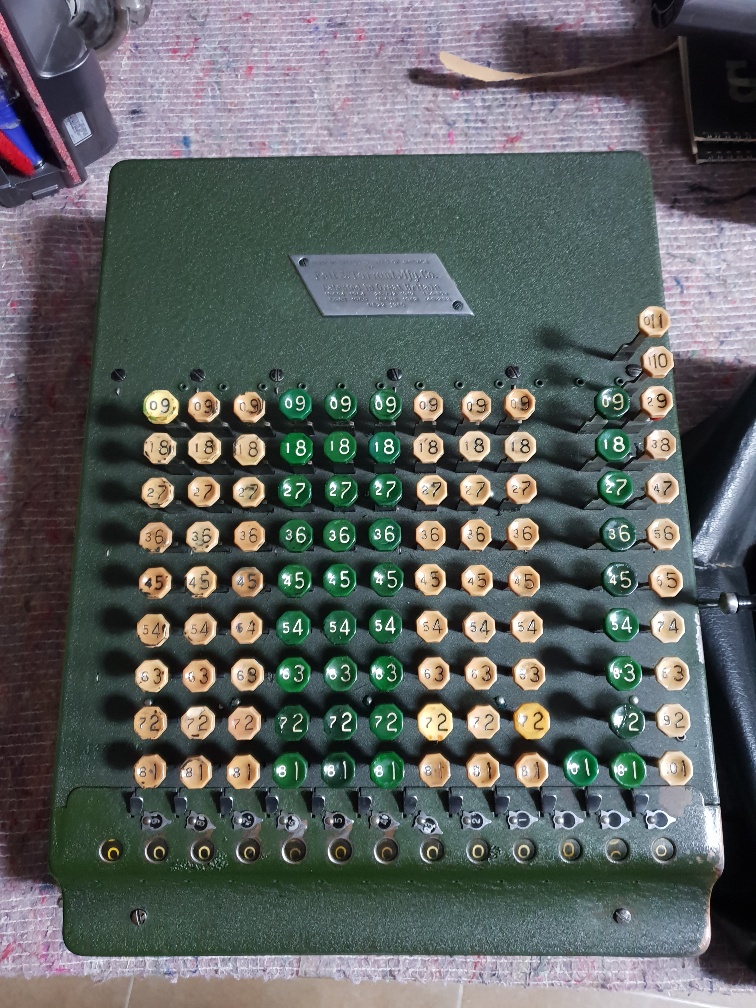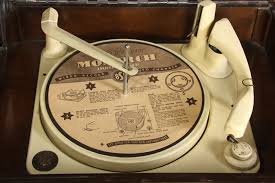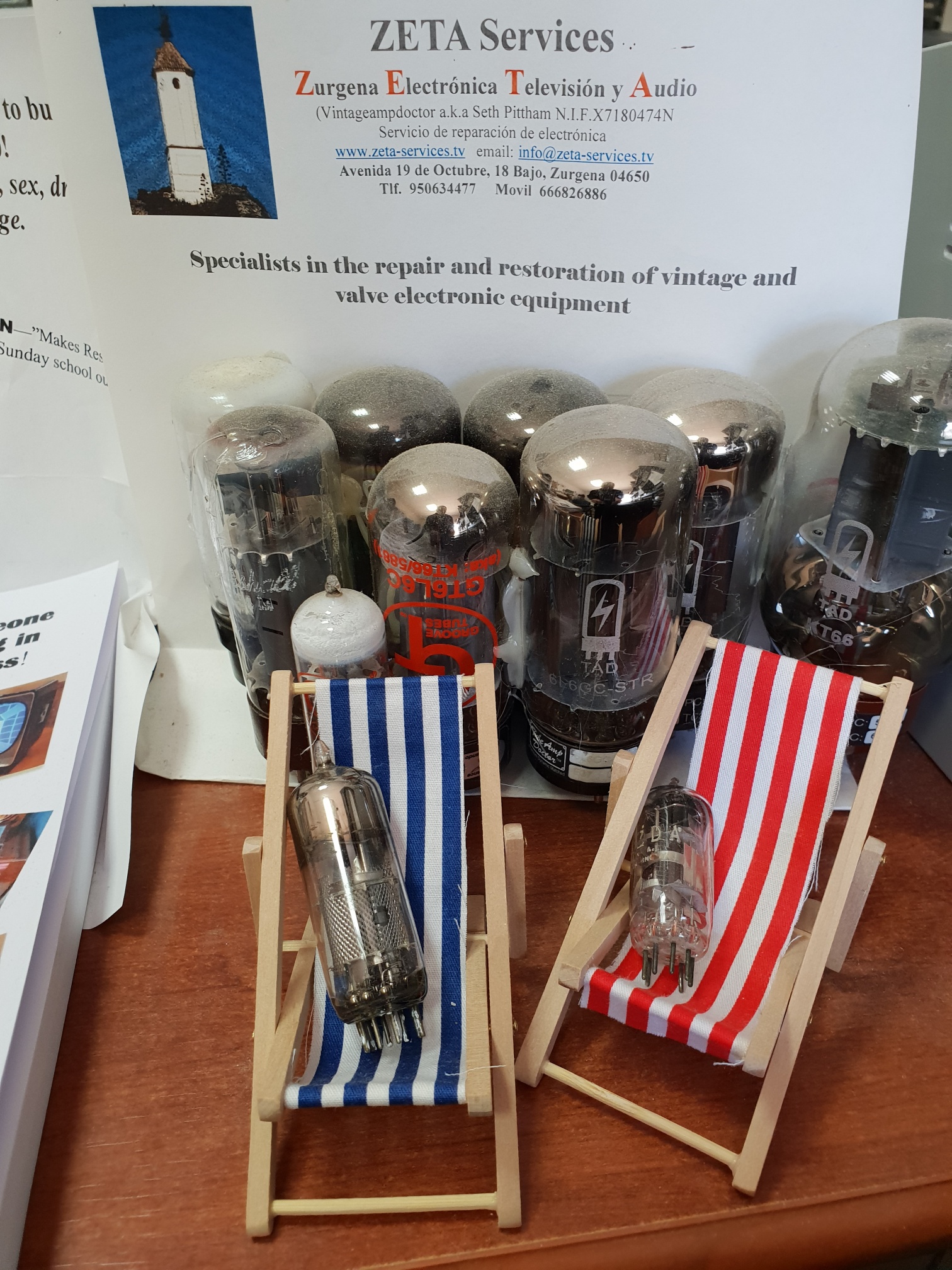Hablamos de radio y televisión en el último par de meses que hacen darse cuenta de cómo han cambiado las cosas desde un punto de vista de mantenimiento.
En los años 50-60, Se fabricaron artículos eléctricos., hasta cierto punto, with serviceability in mind. Radio and TV sets had nice plugable valves. A change or swap around was a quick job and given wages verses cost of goods was on your side, you could make a small living. One could even change a set of brushes, costing 2 chelines, in a vacuum cleaner motor and make a profit. Hands up who has tried to change them in a Dyson? Plastic and pretty but rubbish. I’d rather replace a bus engine single handed. Before coming to Spain, a friend asked me to look at his Service washing machine complete with mangle. It was purchased in 1956. En 2005, it needed new brushes! That was it.
House calls were quite straight forward. Everything you needed to fix 80% of TV faults could be fitted into your case. 10 of the most common valves, a hand full of dropper resistors and capacitors, meter and soldering iron and that was it. Remaining 15% could be fixed with some string and sellotape, whilst the last 5% were taken to the bench for surgery.
Muy a menudo, things were not as they should be. Mr Twiddler was a favourite. You always knew when you found loose or missing screws on the back of the TV, the local “expert” had been there first. Valves would have been swapped around, all the preset controls played with. Even bits removed. There was no point in asking if anyone had looked at the set before. “Oh no me dear” was the reply. Up the bill by 50% was the answer.
Occasionally, there would be the odd pop and puff of smoke. Not a problem if you were working on the set on the bench, but in someone’s house, a list of explanations to hand was useful. “un crujido y eso fue todo, that sometimes happens with this model” y “Vaya, has it ever done that before?”. I recall replacing a large capacitor incorrectly, the result being that after the set was on for a minute, there was a huge bang the offending item shot straight through the back of the TV and made a mess on the curtains. That was a bit awkward. I bought a job lot of aerosol switch cleaning fluid from Dodgy Bob. Good price I thought…wonder why? A lady complained that some of the station select buttons were sticky on her TV. Ah I thought, this calls for a spray with my new tin of magic squirt. Después 10 segundos, I noticed the plastic front of the set melting. That was hard to explain away!
There were some light moments. I was called to a house where the radiogram was dead. It didn’t take long to realise that the lady of the house was a “professional” shall we say. She asked if I wouldn’t mind keeping quiet in the front room whilst she attended to one of her clients. It didn’t take long to fix the set and on the turn table, by chance, was Honky Tonk Woman, Rolling Stones! Bien, try and stop me playing it. I did of course, at full volume. 15 minutos después, the lady returned. She gave me a £2 tip, not from her but from her gentleman friend who found the whole experience much more gratifying knowing that someone was downstairs playing records! True story. Oh we did laugh.
Servicing nowadays is a little different. Certain goods are cheap and cheerful and not meant to be fixed. Washing machines, tumble dryers are assembled then welded together and painted. You try changing drum bearings, control units. It’s a nightmare. Parts can be expensive, add a piddly amount for labour, it’s not cost viable. Take a large LCD or plasma flat screen. You had spent 1000€ 3-4 years ago and you might get the average 3 years before you call me to have a look. Parts, depending on what needs to be done, could be a significant percentage of the cost price. People object to paying. We now have to be very resourceful as to how we carry out repairs. Always go down to component level where possible to keep cost down. Don’t forget, LCD tends to be a little more reliable than plasma. Oh and by the way, insurance companies are wise to the fact that most plasmas fall off the wall after 3 years and don’t pay out, if you get my drift!!
So that’s why there are few ‘little repair shops’ in the high street. To make a living is hard work and you won’t see proprietors of these shops driving Jags or playing with speedboats.
Seth Pittham, www.zeta-services.tv aka www.vintageampdoctor.co.uk.







